
Captain Blood is a 1935 American black-and-white swashbuckling pirate film from First National Pictures and Warner Bros. Pictures, produced by Harry Joe Brown and Gordon Hollingshead, directed by Michael Curtiz and starring Errol Flynn, Olivia de Havilland, Basil Rathbone, and Ross Alexander. With a screenplay by Casey Robinson, the film is based on the 1922 novel Captain Blood by Rafael Sabatini and concerns an imprisoned doctor and his fellow prisoners who escape their cruel island captivity to become West Indies pirates. An earlier 1924 Vitagraph silent film version of Captain Blood starred J. Warren Kerrigan as Peter Blood. Warner Bros. risked pairing two relatively unknown performers in the lead roles. Flynn's performance made him a major Hollywood star and established him as the natural successor to Douglas Fairbanks and a "symbol of an unvanquished man" during the Great Depression. Captain Blood also established de Havilland, in just her fourth screen appearance, as a major star and was the first of eight films costarring Flynn and de Havilland. In 1938 they would be reunited with Rathbone in The Adventures of Robin Hood. The same year, Rathbone also starred with Flynn in The Dawn Patrol. In 1962, Flynn's son Sean starred in The Son of Captain Blood.
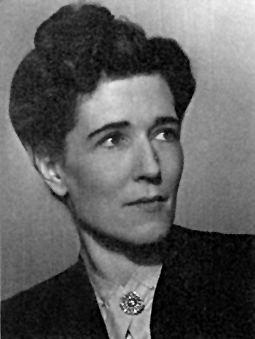
Georgette Heyer was an English novelist and short-story writer, in both the Regency romance and detective fiction genres. Her writing career began in 1921, when she turned a story conceived for her ailing younger brother into the novel The Black Moth. In 1925 Heyer married George Ronald Rougier, a mining engineer. The couple spent several years living in Tanganyika Territory and Macedonia before returning to England in 1929. After her novel These Old Shades became popular despite its release during the General Strike, Heyer determined that publicity was not necessary for good sales. For the rest of her life she refused to grant interviews, telling a friend: "My private life concerns no one but myself and my family."

The historical mystery or historical whodunit is a subgenre of two literary genres, historical fiction and mystery fiction. These works are set in a time period considered historical from the author's perspective, and the central plot involves the solving of a mystery or crime. Though works combining these genres have existed since at least the early 20th century, many credit Ellis Peters's Cadfael Chronicles (1977–1994) for popularizing what would become known as the historical mystery. The increasing popularity and prevalence of this type of fiction in subsequent decades has spawned a distinct subgenre recognized by the publishing industry and libraries. Publishers Weekly noted in 2010 of the genre, "The past decade has seen an explosion in both quantity and quality. Never before have so many historical mysteries been published, by so many gifted writers, and covering such a wide range of times and places." Editor Keith Kahla concurs, "From a small group of writers with a very specialized audience, the historical mystery has become a critically acclaimed, award-winning genre with a toehold on the New York Times bestseller list."

Young Bess is a 1953 Technicolor biographical film made by Metro-Goldwyn-Mayer about the early life of Elizabeth I, from her turbulent childhood to the eve of her accession to the throne of England. It stars Jean Simmons as Elizabeth and Stewart Granger as Thomas Seymour, with Charles Laughton as Elizabeth's father, Henry VIII, a part he had played 20 years before in The Private Life of Henry VIII. The film was directed by George Sidney and produced by Sidney Franklin, from a screenplay by Jan Lustig and Arthur Wimperis based on the novel of the same title by Margaret Irwin (1944).

The Dreamers is a 2003 romantic drama film directed by Bernardo Bertolucci. The screenplay is by Gilbert Adair, based on his 1988 novel The Holy Innocents. An international co-production by companies from France, the United Kingdom, and Italy, the film tells the story of an American university student in Paris who, after meeting a peculiar brother and sister who are fellow film enthusiasts, becomes entangled in an erotic triangle. It is set against the backdrop of the 1968 Paris student riots. The film makes several references to various movies of classical and French New Wave cinema, incorporating clips from films that are often imitated by the actors in particular scenes.

These Old Shades (1926) is a historical romance written by British novelist Georgette Heyer. The novel is set around 1755: Heyer refers to the Duke of Avon's participation in the 1745 uprising as ten years previous; in addition the Prince of Condé is said to be about 20 years old. However, she also refers to Madame de Pompadour as actively involved with Louis XV, whereas her relationship with the King ended at about 1750.
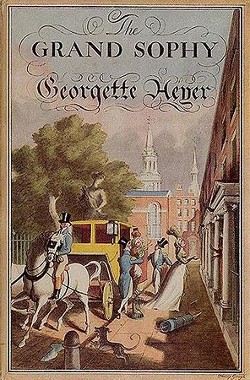
The Grand Sophy is a Regency romance novel by Georgette Heyer. It was first published in 1950 by Heinemann in the UK and Putnam in the U.S. Sales were brisk. Heinemann reported that in Australia it sold forty thousand copies in its first five months. There was also a Book Club edition in 1951.

Guy Rolfe was a British actor.
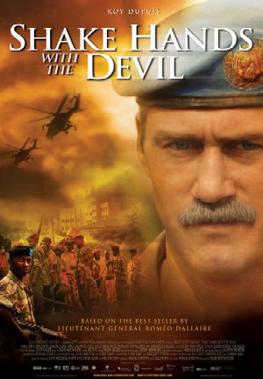
Shake Hands with the Devil is a 2007 Canadian war drama film starring Roy Dupuis as Roméo Dallaire, which premiered at the Toronto International Film Festival in August 2007. Based on Dallaire's autobiographical book Shake Hands with the Devil: The Failure of Humanity in Rwanda, the film recounts Dallaire's harrowing personal journey during the 1994 Rwandan genocide and how the United Nations didn’t heed Dallaire's urgent pleas for further assistance to halt the massacre.

Jean Kent, born Joan Mildred Field was an English film and television actress.
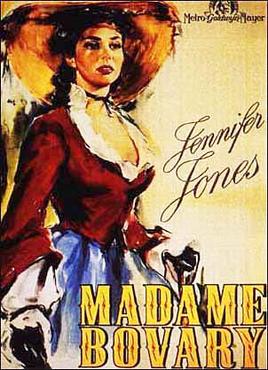
Madame Bovary is a 1949 American romantic drama, a film adaptation of the classic 1857 novel of the same name by Gustave Flaubert. It stars Jennifer Jones, James Mason, Van Heflin, Louis Jourdan, Alf Kjellin, Gene Lockhart, Frank Allenby and Gladys Cooper.
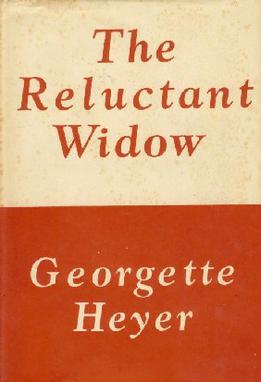
The Reluctant Widow is a 1946 Regency romance by Georgette Heyer, published by Heinemann in the UK, and by Putnam the following year in the US. A humorous parody of a Gothic Novel, it is set in early 1813. It was published with the description "By midnight she is a bride, by dawn a widow", and with gouache artwork by Philip Gough.
Tremaine is a Cornish language name, though most often a surname.
Bernard Knowles was an English film director, producer, cinematographer and screenwriter. Born in Manchester, Knowles worked with Alfred Hitchcock on numerous occasions before the director emigrated to Hollywood.
Henry IV of England has been depicted in popular culture a number of times.

The Woman in Question is a 1950 British murder mystery film directed by Anthony Asquith and starring Jean Kent, Dirk Bogarde and John McCallum. After a woman is murdered, the complex and very different ways in which she is seen by several people are examined. It was loosely adapted into the 1954 Indian film Andha Naal.

The Comedy Man is a 1964 British kitchen sink realism drama film directed by Alvin Rakoff and starring Kenneth More, Cecil Parker, Dennis Price and Billie Whitelaw. It depicts the life of a struggling actor in Swinging London.

Trottie True is a 1949 British musical comedy film directed by Brian Desmond Hurst and starring Jean Kent, James Donald and Hugh Sinclair. It was known as The Gay Lady in the US, and is an infrequent British Technicolor film of the period. According to BFI Screenonline, "British 1940s Technicolor films offer an abundance of visual pleasures, especially when lovingly restored by the National Film Archive. Trottie True is not among the best known, but comes beautifully packaged, gift wrapped with all the trimmings." The film is based on a novel by Caryl Brahms and S.J. Simon, published in 1946. The New York Times called it "a typical Gay nineties success story" that "amuses but never convulses the reader."
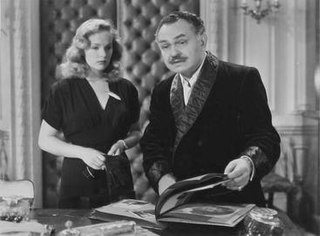
My Daughter Joy is a 1950 British drama film directed by Gregory Ratoff and starring Edward G. Robinson, Peggy Cummins and Richard Greene. The screenplay concerns a millionaire who spoils his only daughter, but has a strained relationship with his wife.
















